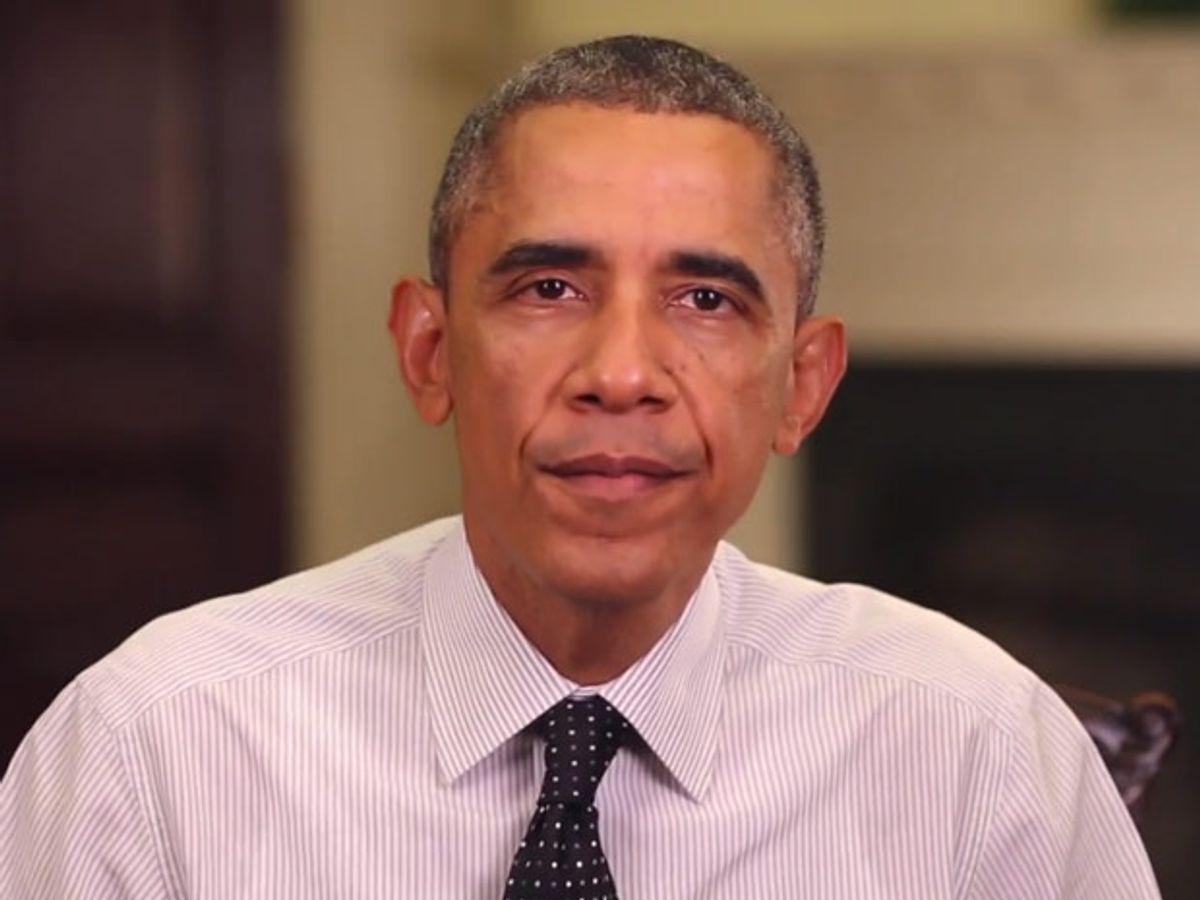The Obama administration has long praised the principles of net neutrality—the idea that the Internet should have no fast lanes or preferred access for entities that can pay more for it. That praise has long been general, though, with the administration stopping short of really entering the fray. That’s no longer be the case. In a statement this morning, the President came out strongly in favor of net neutrality, and floated specific proposals to ensure it is maintained. Those include regulating consumer broadband Internet access—including mobile access—more like a utility obliged to provide unbiased access to all customers.
In a statement accompanying a brief speech posted online, President Obama said that broadband access should be formally reclassified under Title II of the Communications Act, which has long regulated communications services such as phone companies. The President’s statement read, in part:
For almost a century, our law has recognized that companies who connect you to the world have special obligations not to exploit the monopoly they enjoy over access in and out of your home or business. That is why a phone call from a customer of one phone company can reliably reach a customer of a different one, and why you will not be penalized solely for calling someone who is using another provider. It is common sense that the same philosophy should guide any service that is based on the transmission of information—whether a phone call, or a packet of data.
The statement also outline a few key principles the President wants to see the Federal Communications Commission (FCC) enshrine in upcoming rulemaking sessions. These include policies that prevent throttling (the intentional slowing of Internet speeds for some users) and blocking of content by Internet service providers (ISPs). It also asks that ISPs be more transparent abuot how they dole out bandwidth not only to “last mile” consumers but also among content providers. The statement also calls for a ban on paid priority content delivery, which would let content providers pay ISPs to have their content delivered over so-called “fast-lanes.”
Net neutrality advocates like the Electronic Frontier Foundation have been lobbying for broadband access to be classified under Title II for years. Since an appeals court declared earlier this year that the FCC did not have the authority to enforce its existing net neutrality rules, reclassification under Title II has seemed to many proponents like a necessity.
Corynne McSherry, intellectual property director for the Electronic Frontier Foundation, said in a blog post today:
...if the FCC is going to craft and enforce clear and limited neutrality rules, it must first do one important thing. The FCC must reverse its 2002 decision to treat broadband as an ‘information service’ rather than a ‘telecommunications service.’
You can hear IEEE Spectrum senior editor Stephen Cass discuss what reclassification would mean—and what it would involve—with John Bergmayer, staff attorney for the open Internet advocacy group Public Knowledge, here.
Obama is hardly alone in urging the FCC to adopt stringent rules to ensure open access to the Internet. After inviting the US public to weigh in on the issue a few months ago, the FCC has received more than four million comments on its website, weighted largely in favor of preserving net neutrality.
Those comments seemed to inform a “hybrid” plan for net neutrality being considered by the FCC, the details of which were leaked to the press a few weeks ago. The plan would have introduced a sort of two-tier classification for broadband access. Traffic moving betwen content providers and ISPs would be tightly regulated, preventing broadband providers from playing favorites, by for example, letting Hulu pay for a faster line of access than Netflix. Last mile service between ISPs and consumers, though, would be less tightly regulated. In a rare show of unity, that plan was widely panned by service providers and net neutrality advocates alike.
According to the FCC, the hybrid plan was only one of several being considered by FCC chair Tom Wheeler. Having those backup plans may be good news for the FCC, considering that the hybrid plan would appear to be at odds with many of the policies the President is now urging. Wheeler, who was appointed to his post by President Obama in 2013, suggested in response that a single statement from the President would not steer FCC policy.
“As an independent regulatory agency we will incorporate the President’s submission into the record of the Open Internet proceeding,” Wheeler said in a statement this afternoon. “We welcome comment on it and how it proposes to use Title II of the Communications Act.”



